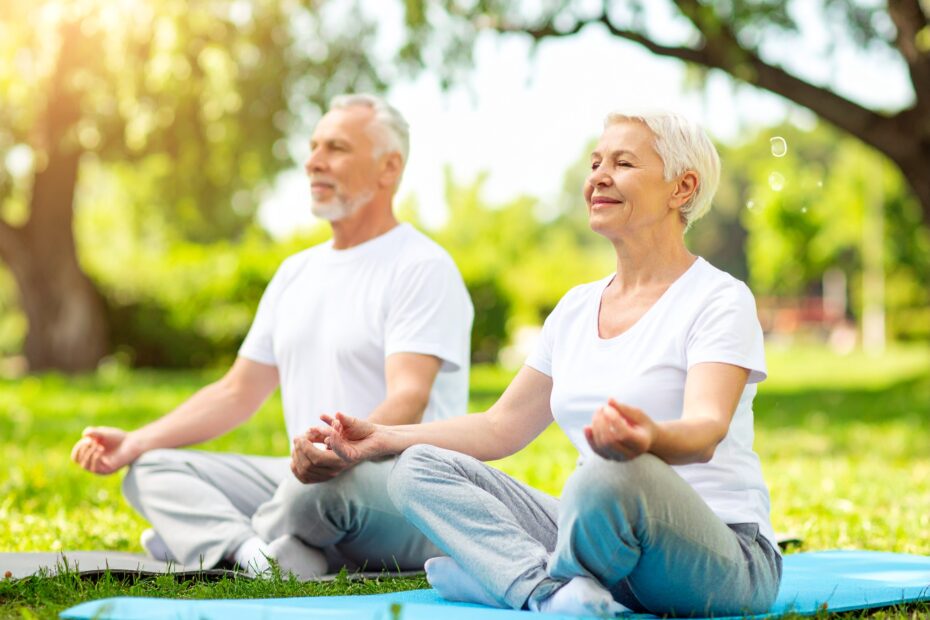As we age, our brains naturally change—memory fades, focus wavers, and stress can feel harder to manage. But what if there was a simple, science-backed way to protect your mind and even sharpen it as the years go by? Enter mindfulness for Seniors. My 75-year-old aunt started practicing mindfulness and noticed a significant improvement in her focus and memory within weeks. And she’s not alone—studies show that mindfulness can enhance memory, reduce anxiety, and slow cognitive decline in seniors. In this post, we’ll explore easy, powerful techniques to help you future-proof your brain and age with clarity and calm.
Table of Contents
Why Mindfulness Matters for Aging Minds
Aging brings about natural changes in the brain, including memory decline, slower processing, and increased susceptibility to stress. But research shows that consistent mindfulness practice can:
- Enhance memory and focus
- Reduce stress and anxiety
- Slow cognitive decline
- Improve sleep and emotional regulation
A study published in the Journal of Neuroscience found that regular mindfulness practice can increase gray matter density in the brain, which is associated with better cognitive function. Practicing mindfulness for the aging brain is more than a trend—it’s a future-focused strategy for aging gracefully with mental clarity.
1. Start with Simple Breathing Exercises
One of the easiest ways to introduce meditation for older adults is through focused breathing. This technique calms the nervous system and sharpens concentration.
Try This:
- Sit comfortably and close your eyes
- Inhale deeply for a count of 4
- Hold for 4 seconds
- Exhale slowly for 6 seconds
- Repeat for 5–10 minutes daily
Regular breathwork supports both emotional stability and cognitive health.
2. Practice Body Scan Meditation
This technique helps older adults reconnect with their bodies while reducing tension and anxiety—two factors that impact brain function.
Steps to Try:
- Lie down or sit comfortably
- Focus attention on each part of the body, from head to toe
- Notice sensations without judgment
- Breathe into any areas of tension
This mindfulness aging practice grounds attention and improves mind-body awareness.
3. Incorporate Mindful Movement
Gentle forms of movement such as yoga, tai chi, or walking meditation promote circulation, balance, and mental alertness.
Benefits:
- Enhances coordination
- Reduces risk of falls
- Improves mood and memory
- Keeps the brain engaged through physical rhythm
Mindful movement supports both physical and cognitive health techniques in a synergistic way.
4. Engage the Senses Mindfully
Seniors can also boost mental sharpness by paying attention to the senses during daily tasks. Eating, gardening, or listening to music can all become mindful rituals.
How-To:
- While eating, focus on taste, texture, and smell
- While walking, notice colors, sounds, and scents
- While listening to music, tune into lyrics and instruments
These sensory practices nurture brain connections and foster presence.
5. Journaling and Gratitude Practices
Writing down thoughts helps process emotions and reinforces positive neural pathways—key for mental well-being in older adults.
Daily Practice:
- Write down 3 things you’re grateful for
- Reflect on one positive memory
- Note any mindful observations or feelings
This technique strengthens both memory and emotional resilience.
Final Thoughts: A Future-Focused Wellness Tool
With the world’s senior population expected to double by 2050, integrating mindfulness for seniors into daily life isn’t just helpful—it’s essential. I remember when my grandmother started practicing mindfulness. She was hesitant at first, but after a few weeks, she felt more present and less anxious. It was a joy to see her thrive. These low-cost, high-impact practices offer a proactive way to protect the aging brain from decline. Remember, it’s okay to start small. Mindfulness is a journey, not a race. Every step you take towards mindfulness is a step towards better cognitive health.
By adopting these mindfulness strategies today, you can look forward to more vibrant, present, and mentally sharp years ahead. Know someone who could benefit? Share this post with them! And if you’d like more tips on brain health and mindfulness for seniors.
Key Takeaways
- Mindfulness boosts memory, reduces stress, and supports brain wellness
- Techniques like breathing, meditation, and journaling are accessible to seniors
- Mindful practices help future-proof cognitive health in a fast-aging world
